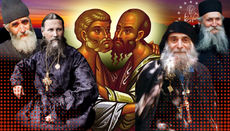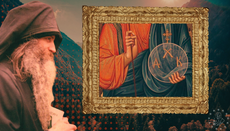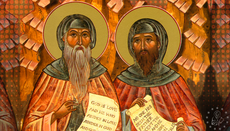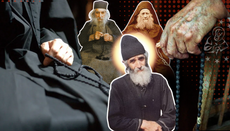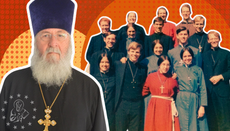A Russian Chrysostom: The Life and Testament of St. Metrophanes of Voronezh
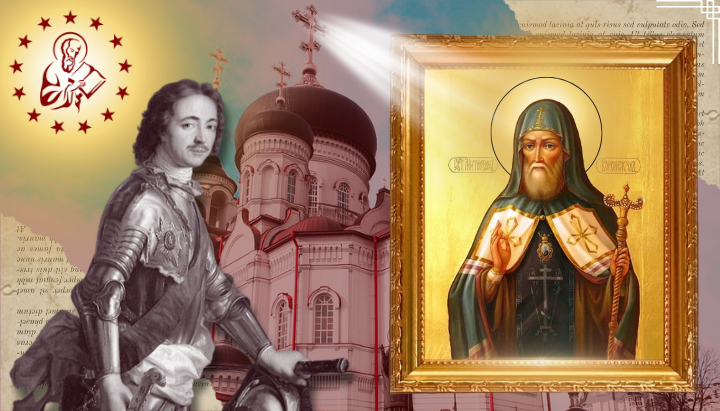
Old Paths Press brings to light a long-overlooked saint of Russia, whose life and writings speak powerfully to today’s Orthodox faithful.
A few years ago, I came across an icon of Sts. Tikhon of Zadonsk, Demetrius of Rostov, and Metrophanes of Voronezh titled “Three Holy Hierarchs of Russia.” I knew the first two saints well, but St. Metrophanes (or Mitrofan) was unfamiliar to me. An internet search yielded little: the OCA website offered only a few paragraphs on his life—enough to spark curiosity, but not enough to satisfy it. So, when Old Paths Press released The Life of Saint Metrophanes of Voronezh, a new volume on his life and spiritual testament, I bought it the same day.
Old Paths has been doing a real service to the American Church by translating texts from the Imperial period of the Russian Church. Each translation enriches our understanding of Orthodox life and shows how a society shaped by Orthodox piety truly functioned—this is especially the case with their translation of St. Nikodim of Belgorod’s Russian Ascetics of Piety series. Many texts remain untranslated, and so I encourage readers to support Old Paths in their important ministry.
This book contains translations of two Russian works: “The Life of Saint Metrophanes, First Bishop of Voronezh” by Archbishop Demetrius (Sambikin), first published in 1869 by Veselovsky Press; and “The Spiritual Testament of St. Metrophanes, Bishop of Voronezh” from Voronezh Antiquity, published in 1903 by Isayev Press. The book is priced at $14.95, very reasonable for the amount of effort put into the translation and publishing. At just 106 pages, the book is concise and enjoyable. The footnotes—many taken directly from the original editions—help illuminate the historical setting. As with all Old Paths titles, the text is clean, readable, and well-formatted.
I did come across the first typo I’ve ever seen in an Old Paths publication: a psalm reference marked as LXX when it should have been Masoretic. Hardly a serious issue and only worth mentioning because it’s the first typo I’ve found across no less than eleven volumes published by Old Paths. By comparison, major Orthodox publishers—like SVS Press—can’t get through the table of contents without glaring typos.
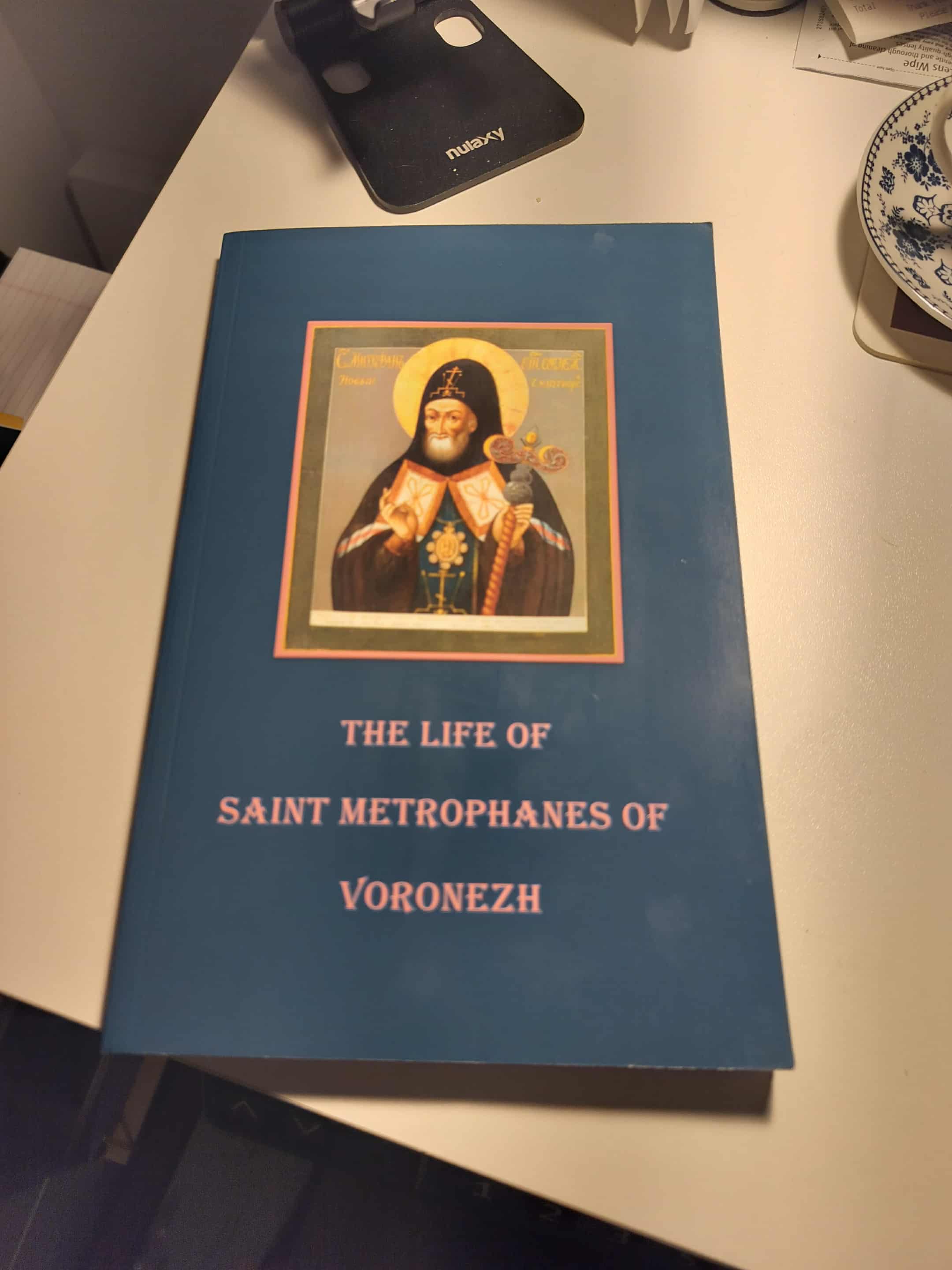
The Life of St. Metrophanes of Voronezh
St. Metrophanes was the first bishop of the Voronezh diocese, a frontier region south of Zadonsk dotted with Cossack settlements, roaming bands of Tatar, bandits and thieves. This ukraina, or outland—not to be confused with today’s Ukraine—lay at the edge of civilization. The Voronezh River, flowing south toward Turkish controlled Azov, gave the region strategic significance.
St. Metrophanes’ episcopacy coincided with one of the most turbulent periods in Russian Church history: the Old Believer schism and the reforms of Peter the Great. In Moscow, he defended Orthodoxy against mobs of Old Believers after the death of Tsar Feodor. His diocese was filled with Old Believers as well, yet he sought their reconciliation not by coercion, as the state often did, but with pastoral patience and compassion.
While secular historians celebrate Peter the Great as a modernizer who pushed “backward” Russia toward “enlightened” Europe, Orthodox Christians often remember him as a harsh and oppressive ruler. It is therefore striking to read of Peter’s deep respect for St. Metrophanes—even to the point of carrying his coffin at the saint’s funeral.
The Life records both St. Metrophanes’s loyalty to the Tsar and his courage in holding him accountable. When Peter demanded statues of pagan gods be erected around the Admiralty, St. Metrophanes refused to enter. When, as a result, Peter threatened the saint with execution, he responded: “As I am guilty of disobeying our Great Sovereign and Lord, I am preparing myself for death.” Peter, shaken by the saint's boldness, ordered the idols destroyed and begged St. Metrophanes's pardon. This episode is one of the most enjoyable of the book, and by itself makes purchasing the book worth it.
Such episodes reveal both St. Metrophanes’s patriotism and his spiritual authority. He gave thousands of rubles to support Russia’s troops, commanded prayers of supplication and thanksgiving for the nation, and personally blessed the work of shipbuilders as Russia prepared for war. His life reminds us that Orthodoxy embraces love of country as part of love of neighbor. Sadly, modern liberal ideologies often distort this truth, dismissing patriotism as “nationalism” or “Ethnophyletism.” Yet the witness of St. Metrophanes—and indeed of Orthodox nations throughout history—shows that Christians are called to share in the fate of their people: their triumphs and their trials alike.
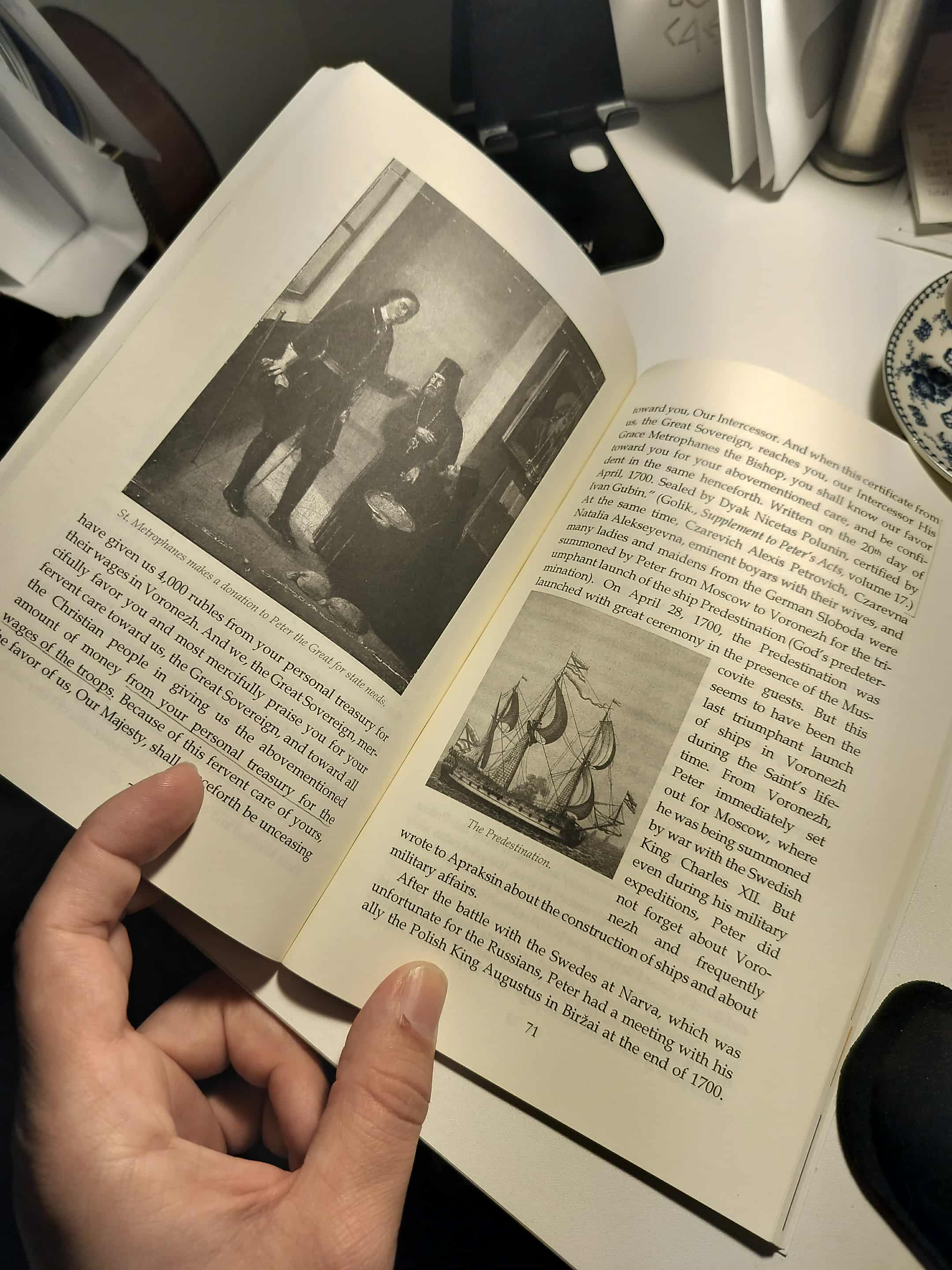
The Spiritual Testament
The second half of the book presents St. Metrophanes’s spiritual testament—his last exhortation to the clergy and faithful of Voronezh. He urges priests to serve with zeal and reverence, to take penances seriously, and to preserve liturgical and moral purity. He warns them against fellowship with heretics, including Lutherans, Calvinists, and Latins. His spiritual testament reveals a man who, while actively involved in the affairs of state and close to a Tsar known as a Westernizer, remained deeply spiritual and in-tune with his flock.
Conclusion
The Life of Saint Metrophanes of Voronezh finally introduces Orthodox Americans to the saint’s enduring spiritual legacy. He has long been revered in Russia as a “Russian Chrysostom” and one of the Three Holy Hierarchs of Russia. In contemporary America—where many recent converts import their former worldviews into the Church and simply affix an “Orthodox” label to them, and where we too often mistake our limited experience of the faith for its fullness—St. Metrophanes shatters our idols. At a time when Orthodox Christians are quick to criticize their hierarchs, the humility, piety, and courage of St. Metrophanes stand as a timely and much-needed lesson.
UOJ-USA recently reviewed George Pachymeres's two volume The Errors of the Latins, published by Uncut Mountain Press.
To learn more about Old Paths Press and the many important spiritual works they have published, visit their website.
